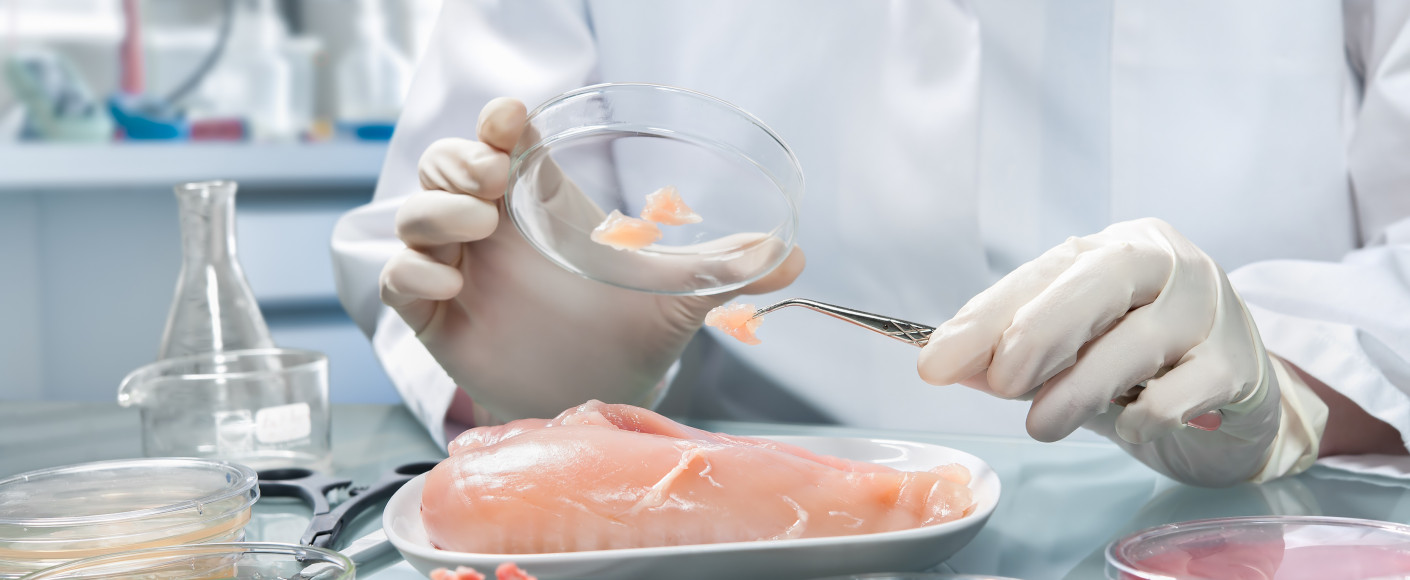Spotlight on Food Inspections
Food safety. We admit, it doesn’t sound very exciting. But it’s the most fundamental aspect of our food supply, because nobody wants their food to make them sick.
From farmers to retailers, there are countless people keeping an eye out to guard against just that. Central to it all are food inspectors. They evaluate establishments and practices to make sure they follow state and federal regulations.
As you can imagine, there are a lot of regulations governing the food supply! Inspections are comprehensive. Hopefully this overview will introduce you to the process and help you rest easy knowing Kansas meat, poultry and dairy products are safe to consume.
Federal Inspection Programs
The U.S. Department of Agriculture (USDA)’s Food Safety Inspection Service (FSIS) is responsible for ensuring that meat and poultry products in the U.S. are “safe, wholesome, and correctly labeled and packaged.”
FSIS has districts across the country whose employees are devoted to protecting public health.
- FSIS inspectors ensure:
- Live animals are healthy and treated well
- Facilities are clean and sanitary
- Slaughter is conducted humanely
- Animal by-products are handled properly during processing
State Inspection Programs
Food inspections also happen at the state level. To conduct inspections, each state must have standards “equal to” those at the federal level. Food that passes federal FSIS inspection can be sold across state lines and exported internationally. Food that passes state inspection can only be sold within that state.
State inspections in Kansas fall under the Kansas Department of Agriculture (KDA). We’ll look at two of their major programs:
Kansas Meat Inspections
The Kansas Meat and Poultry Inspection Program helps ensure that meat and poultry produced in Kansas is wholesome. It also protects consumers against false advertising by ensuring food is labeled properly.
Inspection requirements vary based on the type of operation, but overall, inspectors help reduce the risk of contamination at every stage of handling, including:
- Production
- Processing
- Packaging
- Distribution
- Preparation
Inspectors also conduct sample testing to ensure meat is safe to consume.
Meat products that pass inspection are stamped with either a federal or Kansas legend, depending on who conducted the inspection. Some butchered meat may have a store label indicating that it came from inspected meat or poultry.
Kansas Dairy Inspections
Milk and dairy products are among some of the most thoroughly inspected and tested food in the country. The Kansas Dairy Inspection Program covers every step as milk goes from farm to your cart at the store, including:
- Farm conditions
- Transportation
- Processing
- Distribution
- Point of sale
This rigorous inspection program is specifically geared toward farmers who want to produce pasteurized Grade A or manufacturing-grade milk. Those farms are inspected four to five times per year under the program.
Raw, or unpasteurized, milk is not subject to the same stringent requirements. Because of that, raw milk and dairy products are more likely to contain harmful bacteria and the KDA advises against consuming them.
The Kansas Dairy Inspection Program goes beyond inspecting farms and facilities. They test samples to ensure milk is safe, as well as oversee consumer education and protection.
Phew! That’s a lot — and it’s only the tip of the iceberg in ensuring that the meat and dairy products that make their way to your table are wholesome and safe for your family to eat.
If you have a question about your food, or the Kansas inspection programs, you can contact the KDA at 785-564-6700 or KSAG@ks.gov.
More About
- Likes: Food safety, consumer health
- Dislikes: Foodborne illness, unsanitary conditions

